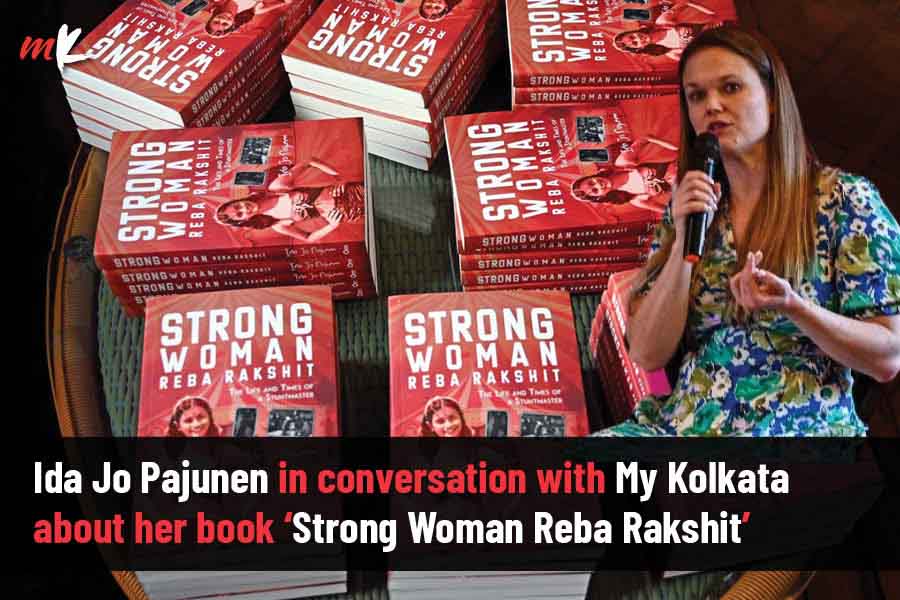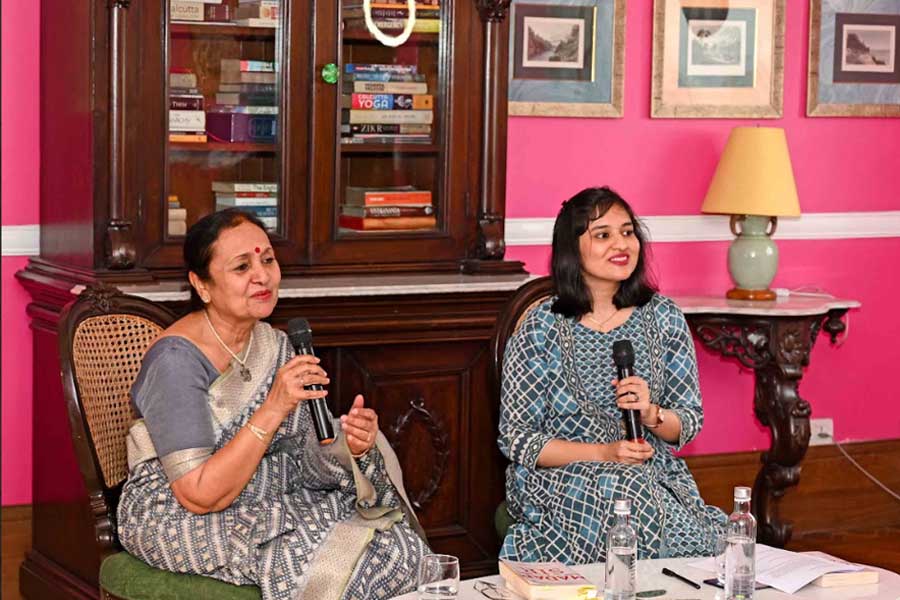For most people, the lockdown came with new hobbies and new passions, marked by an exponential rise in the amount of bread baked and inverted coffee whipped. Goals and challenges arose and faded like fleeting dreams. For some people, however, the solitude of the lockdown provided for an uninterrupted stretch of inspiration, research and unbridled creativity. One such fortunate person was author Ramona Sen, whose novel, The Lady on the Horse and Other Secrets, blossomed during those hushed months. As the world came to a standstill, Ramona’s words danced across the pages, the silence outside becoming a canvas for her story to take shape.
On the evening of March 12, an intimate gathering convened by the Glenburn Culture Club at the Glenburn Penthouse for a discussion on The Lady on the Horse and Other Secrets. The guests eagerly engaged in an interactive conversation led by Priyam Marik of My Kolkata, delving into the depths of the author’s inspiration and creative process.
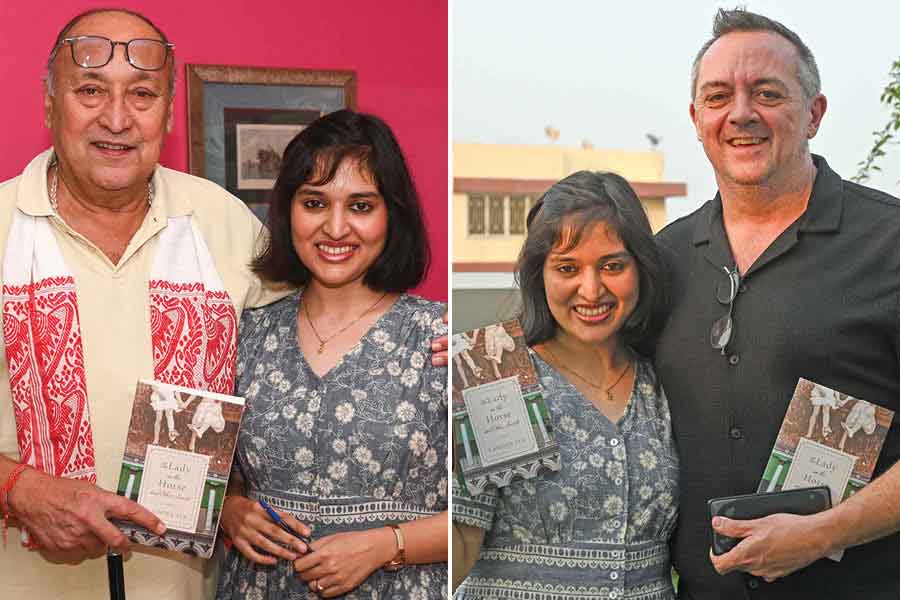
(L) Actor Victor Banerjee and (R) chef Shaun Kenworthy with author Ramona Sen
The conversation, following a heartwarming introduction by journalist Upasya Bhowal, began with taking a closer look at the very title of the novel. Who was this lady on the horse? Was she real, or merely a figment of imagination? Ramona revealed a poignant connection between fiction and reality, unveiling her great-grandmother from Chittagong as the inspiration behind the Lady on the Horse in her novel. She fondly recalled discovering a faded photograph of her ancestor, Tusharbala Khastgir, astride a horse, in her mother’s old family album during the pandemic. This image lingered in her mind and ultimately found its way into the narrative of her book. While the real-life inspiration may not have mirrored the fictional Pritilata of the book, it is this photograph which is the one concrete object passed down through the generations of Lahiris.
Crafting a saga spanning five generations over a century might seem like a daunting task requiring meticulous planning and structure. However, for Ramona, this was not entirely true. “The manuscript took a life of its own,” she said. “I did not write the book chronologically at all, it was entirely patchwork! I was exploring the insidious implications of class and caste in our lives, which led me to trace why we behave the way we do.” On giving lives and personalities to her characters, she said, “I usually flesh out a character’s personality and motivations in a diary, I free-write my way into really knowing them. Which means I write pages without pausing to think until a character writes itself which then turns out to be very different from who I thought they were going to be.”
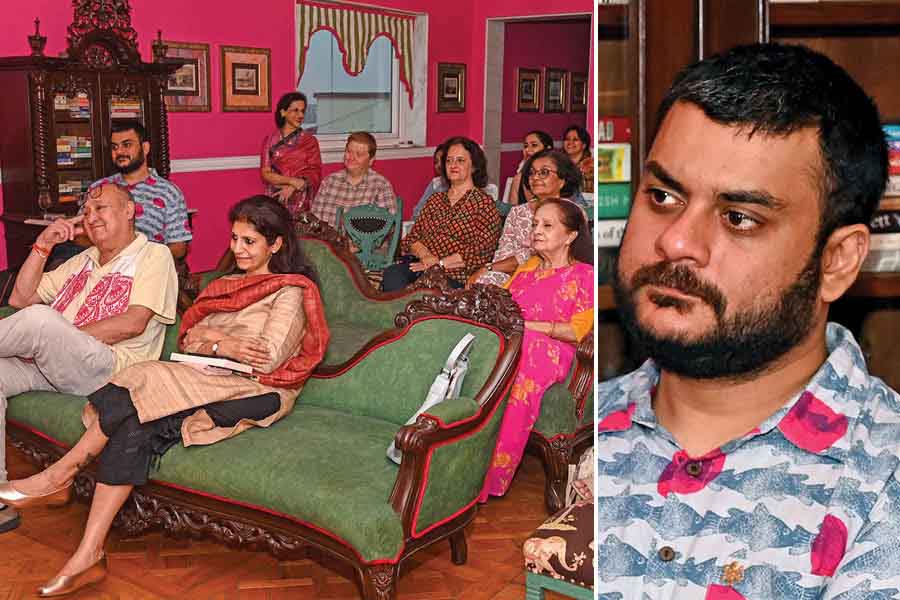
(L) The audience at Glenburn Penthouse; (R) chef Auroni Mookerjee
The Lady on the Horse and Other Secrets uses the scaffolding of ancestral lineage-building to talk about deeper-rooted societal evils that infiltrate even the wealthiest and seemingly most educated of baris. The novel depicts a caste and class struggle – one in which the ‘upper’ of these use notions of beauty and gentility to uphold their tyranny over those less fortunate. Some characters break free from societal expectations, while others are crushed by them.
A large part of this novel is set against the struggle for the country’s Independence. As a reflection of life, the personal intertwines with the political. “All the historical action plays out in the backdrop more than the foreground, but it gains prominence in certain periods such as the 1943 famine. Or Direct Action Day,” said the author. “We’re all shaped by the politics of our time, and when the politics gains a certain momentum, then it affects the politics of everything else, like interpersonal relationships and already existing inequalities. Our lives become a microcosm of what is playing out on the larger stage.”
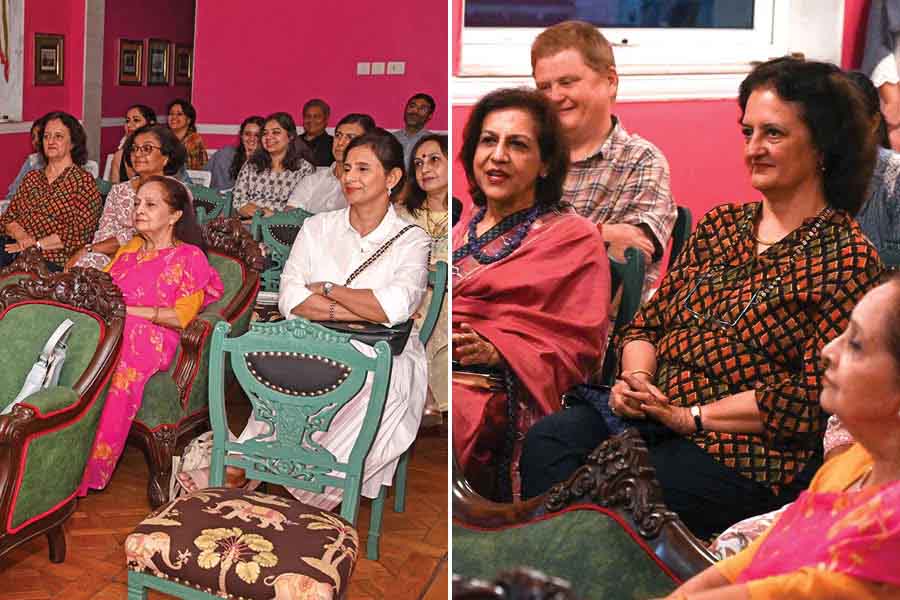
Sheema Mookerjee, Aloka Gooptu, Tabassum Iqbal and Ayesha Mazumder. (R) The author’s mother, Monisha, weighs in, drawing a smile from Varsha Suraiya and Paul Walsh
Priyam invoked a culinary metaphor for the narrative style which he described as being “light as a souffle even though the themes are as heavy as a Beef Wellington (food metaphors go hand-in-hand with Ramona Sen, should you get to know her)”. Ramona said, “I think seeing the lighter side of life has always been how I look at things. I spent my teenage years reading every single PG Wodehouse book I could get my hands on, and that cemented into my voice. My earlier novels were entirely humourous while I use humour here to highlight the darker aspects of life.”
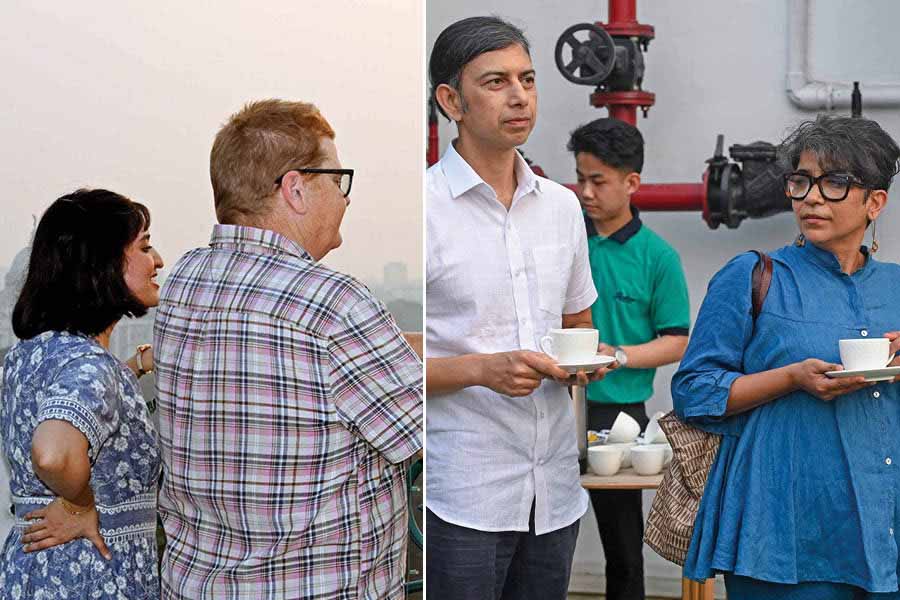
(L) Jungle Crows founder Paul Walsh and Ramona Sen look at the Crow field on the Maidan from the Penthouse terrace; (R) author Udayan Mukherjee with his wife Devashri
The women in The Lady on the Horse and Other Secrets are defined either by their belonging to or betrayal by the men in their lives, with the actual centre of power being a patriarchal one. “As we go back in time,” said Ramona, “the actions of men directly affect the women who react accordingly. But in the present, the two girls, Ayesha and Pixie, although impacted by what men have done or are doing, exhibit more agency than their ancestors and are, in fact, finally able to take control of their destinies.”
The Q&A session with members of the audience touched upon topics ranging from the inspiration behind the novel (just life!), to the food that kept the writer company through lockdown writing (‘functional’ boiled food by her mother!).
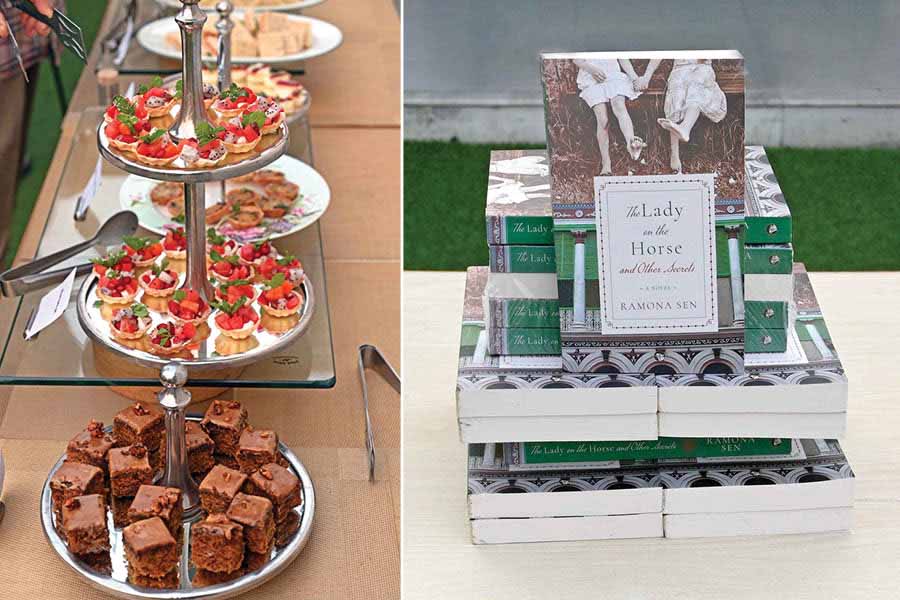
The high-tea spread at the Glenburn Penthouse along with copies of ‘The Lady on the Horse and Other Secrets’ published by Speaking Tiger Books
On a lighter note and guided by Priyam, Ramona set the scene for a cosy dinner at Sienna Cafe with five of her favourite fictional characters, including one from her novel. The characters who were invited were the Dowager from Downton Abbey, Nandini from The Lady on the Horse, and three girls who shaped Ramona’s childhood — Sara Crewe (A Little Princess), Matilda (Roald Dahl) and Leonie (These Old Shades). No male characters, you ask? There’s always room for Wodehouse’s Jeeves shimmering into the dining room to serve Anatole’s scrumptious dishes!
Buy the book here!
